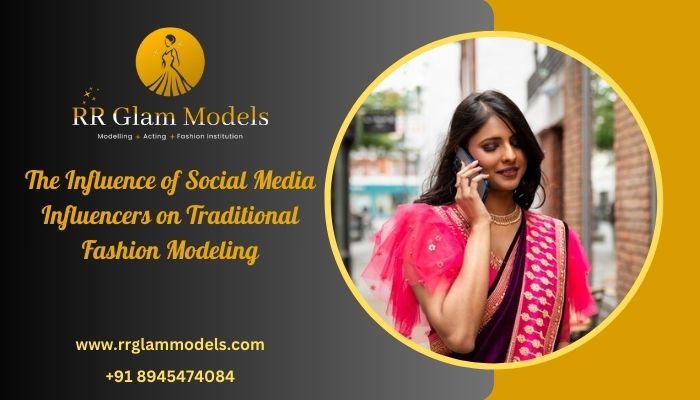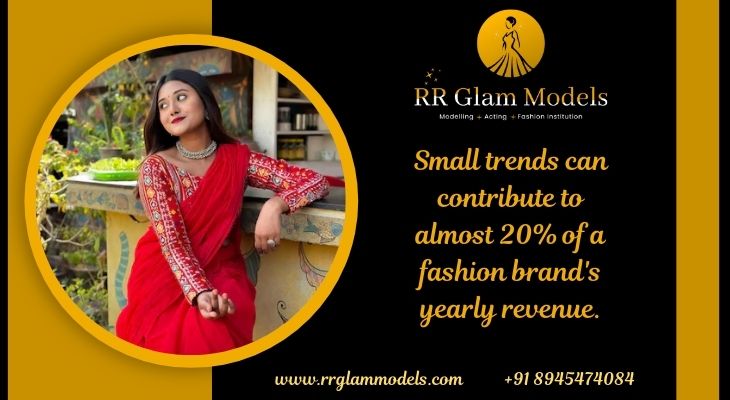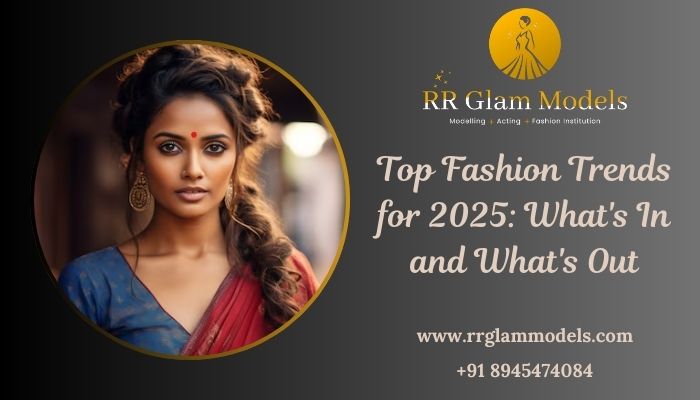The Influence of Social Media Influencers on Traditional Fashion Modeling
By: Admin

08 Sep 2024
In the lively streets of Paris, a fashion blogger’s Insta post of a colourful, one-of-a-kind dress became extremely popular. This one post, viewed and reposted by millions, resulted in an unexpected increase in the desire for that dress, changing the sales tactics of leading fashion labels instantly.
It was a key moment that emphasised a massive change in the fashion world: the emergence of social media influencers as influential trendsetters. This narrative is not a one-time occurrence, but a story that unfolds every day in the fashion industry.
Social media influencers, with their large and active followers, have become key players in creating and spreading fashion trends.
1: Being Authentic
Perceived authenticity is a key factor that sets influencers apart from traditional celebrities.
Influencers frequently talk about their personal stories, encounters, and raw instances on any product they have used. This, in turn, helps them in building a bond with their audience.
Most people highly appreciate this genuineness and relativity, which improves the success of influencer marketing initiatives in the fashion sector. The immediate and hands-on characteristic of social media platforms enables influencers to interact with their audience in real-time.
Based on a survey conducted by an affordable fashion institute Kolkata, Instagram stands out as the most successful social media platform for displaying genuine fashion content that connects with users.
From engaging with comments to hosting polls, influencers facilitate a conversation that builds a community. It boosts their relationship with their audience and impacts consumer buying choices.
2: The Introduction of Micro-Trends
Influencers possess a distinct skill to generate and magnify small-scale trends.
These may not be widely acknowledged like popular seasonal styles, but they can still gain significant popularity within certain groups or demographics.
As per a McKinsey report, small trends like these can contribute to almost 20% of a fashion brand’s yearly revenue. These small trends provide chances for fashion startups to establish special markets and develop distinct products. Influencers can quickly transform a niche product into a must-have item.

3: An Ubiquitous Experience
Fashion’s impact has moved beyond Instagram to also reach platforms such as TikTok and Pinterest. Short TikTok videos enable creative expression and trendsetting, while Pinterest acts as a visual discovery tool, inspiring and connecting fashion enthusiasts with brands.
Furthermore, influencers play a key role in influencing fashion trends. The content they carefully select, which frequently features the newest trends and fashion-forward appearances, inspires their followers.
Influencers differ from typical fashion media by using high-end fashion with everyday clothing, making trends more reachable and relevant to various viewers.
4: Inclusivity and Diversity
Influencers have disrupted traditional practices in fashion advertising.
The shift from using airbrushed models and exclusive runway events to more inclusive and diverse beauty and style representation has occurred.
Influencers of various body types, ethnicities and backgrounds have been quite important in challenging stereotypes. They have also been advocating for a more diverse perspective in the fashion industry. 60% of individuals believe that diversity is crucial in the content shared by fashion brands.
5: The Celebrity Status
In addition, influencers who go to events frequently work together with famous designers and fashion brands to create stunning outfits. Even though luxury brands have always been known for accessible and affordable fashion, they now understand their ability to appeal to larger audiences.
The attraction of genuineness and connection that influencers offer has led luxury brands to adopt this change. They also cleverly incorporate influencers into their marketing strategies, a low cost modelling institute Kolkata has suggested.
These collaborations benefit both influencers, who receive exclusive, high-end clothing, and designers, who gain access to a wider audience on the influencer’s social media channels.
The powerful force of the red carpet experience has been strengthened by the symbiotic relationship between influencers and fashion brands.
The Bottom Line
Overall, within the world of the fashion sector, influencers have become significant trendsetters and important figures in influencing consumer behaviour.
Their genuineness, ability to connect, and direct interaction with viewers have transformed the manner in which fashion is advertised and enjoyed.
The partnership between influencers and the fashion industry is expected to keep growing, with both sides taking advantage of the opportunities available.
With influencers continuing to influence the fashion narrative, brands need to adjust and accept this new digital influence era. Otherwise, it’ll be impossible to stay relevant and connect with various audiences.
In the upcoming years, influencers are expected to continue playing a significant role in the constantly evolving fashion industry.
Recent News
-

Dressing for Your Body Type: A Complete Guide
26 Mar, 2025
-

-

-

Categories
Archives
- March 2025 (3)
- February 2025 (3)
- January 2025 (3)
- December 2024 (4)
- October 2024 (1)
- September 2024 (4)
- August 2024 (2)
- July 2024 (5)

 M/S RR Glam Models
14 1/2B Lenin Sarani
Kolkata - 700013
M/S RR Glam Models
14 1/2B Lenin Sarani
Kolkata - 700013 rrglammodels@gmail.com
rrglammodels@gmail.com +91 8945474084
+91 8945474084



